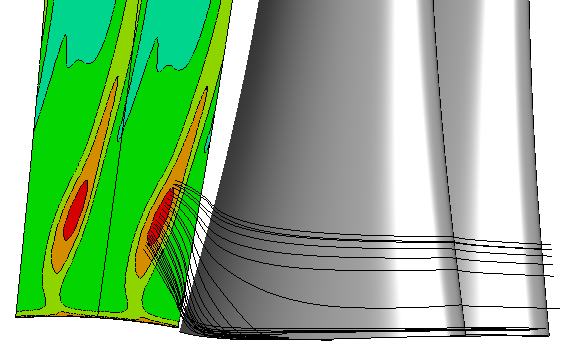GE integrating AI to enable performance-informed gas turbine inverse design
GE researchers are developing an artificial intelligence (AI) and machine learning (ML)- enabled inverse design framework that allows performance metrics to create more optimized designs for industrial gas turbine (IGT) aerodynamic components. Project aims to achieve a 30-50% reduction in design cycle times, or from 1 year to a few months. The emerging digital toolset is expected to help combined cycle power plants more efficient.
GE Research, the technology development arm for GE, has been awarded Phase I of a two -year, $2.1 million project through ARPA-E’s DIFFERENTIATE (Design Intelligence Fostering Formidable Energy Reduction and Enabling Novel Totally Impactful Advanced Technology Enhancements) program to build an AI-driven invertible neural network that can direct translate these metrics into optimized designs.
Currently, complex aerodynamic energy components such as gas turbine blades have extremely long design cycle times of more than a year that require compromise between cost, performance and reliability. GE researchers, together with GE’s Gas Power business and the University of Notre Dame, are aiming to develop and demonstrate a new AI and ML- enabled design framework that takes half the time.

Pictured is a computational fluid dynamics (CFD) model predicting the flow trajectory and resulting losses through the hub of a gas turbine blade. Design and performance metrics, such as aerodynamic loss for a turbine, will evaluated by the artificial intelligence (AI) and machine learning (ML)-enabled inverse design framework being developed by GE researchers as part of their ARPA-E DIFFERENTIATE project.[/caption]
The end goal of the two- year project is to create an inverse design process to optimize the design of a gas turbine blade component and reduce the design cycle time. In future, the framework will also be extended to other applications such as aviation turbine engines, aeroderivative engines, wind turbines, and hydro turbines.